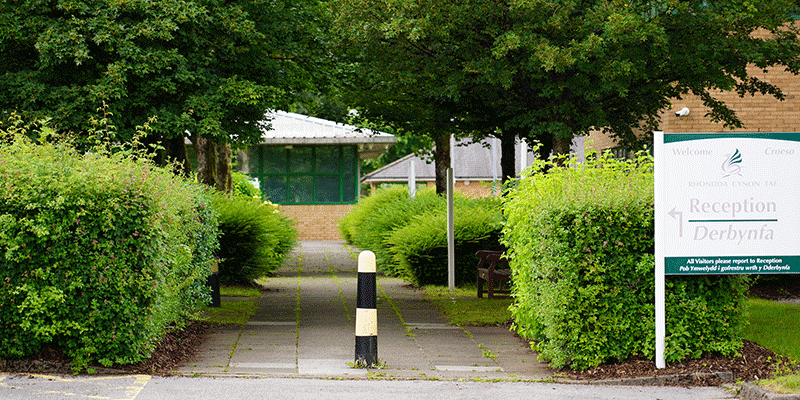PROPOSED increases to the distances from school where pupils become eligible for free transport in Rhondda Cynon Taf look set to be decided.
The proposed new home to school transport policy would see primary school pupils living two miles or further from school get free school transport instead of the current 1.5 miles, with the rule for secondary school pupil eligibility changing from two miles to three
A report due to go before cabinet on Wednesday, March 20, said this would mean around 2,750 pupils would no longer have access to free transport with more than 6,000 keeping it.
In response to significant financial challenges, the council consulted on a review of its current home to school transport policy to align with Welsh Government statutory distance criteria set out in the Learner Travel (Wales) Measure 2008.
The council said the preferred option would mean that, from the start of the 2025/2026 academic year, the council would provide transport for mainstream English, Welsh and faith primary schools, secondary schools and colleges in line with statutory distance criteria.
The council said school transport costs had increased from £8m in 2015 to over £15m for the 2023/24 financial year.
If approved the move would save the council £2.5m in a full year, meaning the council would continue to provide discretionary provision amounting to £4.4m per year and the council said that free transport would continue for more than 6,000 learners.
It would be implemented from September, 2025, so £1.4m would be saved in the financial year 2025/26, with the full year saving of £2.5m then being made from the financial year, 2026/27.
The council said the majority of Welsh local authorities (18 out of 22) had aligned their transport arrangements in line with statutory distance only.
Transport for pupils with additional learning needs, a disability or a medical condition that doesn’t allow them to walk to school would remain unchanged under the proposal as transport is decided by an individual’s need.
Results of the consultation
An initial consultation was held between November and January but the council extended this for a further three weeks from January into February as it said it recognised the significance of the proposal for pupils so the consultation lasted for nine weeks in total.
In total, 2,858 responses were received to the consultation survey and 39 individual emails and letters with 79% of respondents disagreeing with the preferred option.
Some of the comments included general disagreement with the proposal and that transport provision should remain as it was currently provided.
They raised concerns with the financial impact on families and single and working parents or carers.
They said they would be happy to pay a charge, including suggestions of a means-tested or subsidised charge and also raised concerns about the impact on school attendance.
Safety concerns were raised particularly for younger learners as well as concerns over increased traffic, congestion and the environment.
Other comments included that it was “unfair” to exempt faith and Welsh schools, adding that they should be the same.
The impact on Welsh language learners and Welsh education standards was raised and there were comments about treating Welsh medium, English medium and faith learners equitably.
They also said that savings should be found from elsewhere and that alternative options should be considered such as looking at other possible distances that would qualify for free transport provision or retaining certain elements of current discretionary provision.
They also raised issues with existing public transport provision.
The proposals will also be discussed by the council’s overview and scrutiny committee on Monday, March 18.
The rationale from the council
A spokesperson for RCT Council said: “Like all local authorities, the council faces significant financial challenges over the short to medium term, with an estimated budget gap of £85.4M facing Rhondda Cynon Taf CBC over the next three years.
“The council therefore has no alternative other than to consider areas of service, where it provides over and above what is required in legislation and what the government provides funding for.
“Due to these financial pressures the council consulted upon proposals which would change the current home to school transport policy, namely to align transport provision more closely with Welsh Government statutory transport requirements set out in the Learner Travel (Wales) Measure 2008.
“Home to school transport is provided for approximately 9,100 mainstream pupils, 960 additional learning needs learners, and 2,300 college students each day.
“Approximately 9,000+ of these learners are transported on a discretionary basis. This means that the council provides discretionary transport for more learners than almost every other Welsh council’s home to school transport operations.
“In addition, the council’s home to school transport costs have increased from £8m in 2015 to over £15m for the 2023/24 financial year.
“Despite the wider financial context facing the council, cabinet recognises the significance of the proposed changes and will consider the feedback received through the consultation process, alongside further advice received from council officers and updated equality and Welsh language impact assessments.
“The potential changes, if implemented, would still see Rhondda Cynon Taf County Borough Council continue to provide one of the most generous discretionary home to school transport policies in Wales and far above what the council is expected or funded to provide by the government.
“These proposals will initially be scrutinised by the council’s overview & scrutiny committee, before cabinet considers whether or not it wishes to progress with implementation of a new home to school transport policy at its meeting on March 20, 2024.”



















